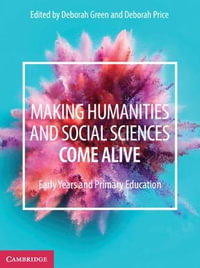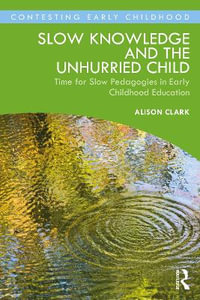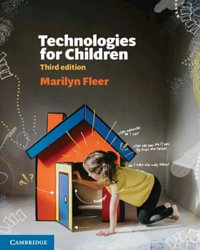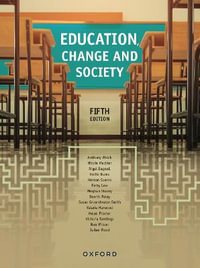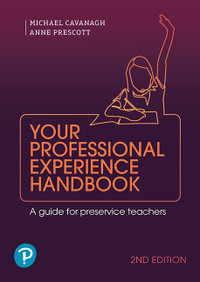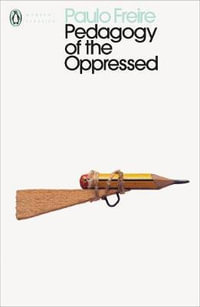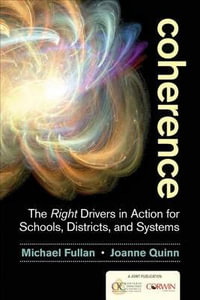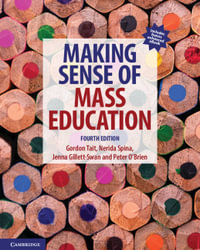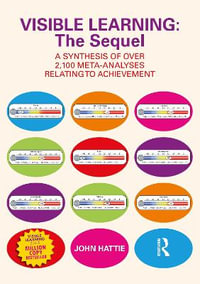
Instant online reading.
Don't wait for delivery!
Go digital and save!
In Community of Inquiry with Ann Margaret Sharp
Childhood, Philosophy and Education
By: Maughn Gregory (Editor), Megan Laverty (Editor)
Hardcover | 15 August 2017
At a Glance
288 Pages
16.3 x 24.2 x 2.3
Hardcover
RRP $284.00
$200.95
29%OFF
or 4 interest-free payments of $50.24 with
orAims to ship in 7 to 10 business days
This book offers the first-ever anthology of the work of the late philosopher of education Ann Margaret Sharp. From the early 1970s until their deaths just five months apart in 2010, Matthew Lipman and Ann Margaret Sharp collaborated on developing both a theory and a practice of what they called "the community of philosophical inquiry" (CPI) as the standard method of practicing "Philosophy for Children," as they conceived and pioneered that educational endeavour.
Sharp developed a perspective on the interdependence of education, philosophy, personhood and community that remains unique and important today. This perspective was shaped not only by her work in philosophy and education, but also by her avid studies in literature, feminism, aesthetic theory and ecumenical spirituality. She authored scores of journal articles and book chapters, yet much of her work remains difficult to access. Ann Margaret Sharp aims to remedy this by offering critical appraisals of Sharp's work. With contributions from senior figures in fields within which she produced her most focused work, this book aims to review all of her work in each field, with each contributor selecting three or four pieces of Sharp's original work to present and critique.
Sharp was a master facilitator of the classroom community of philosophical inquiry and she prepared thousands of philosophers and teachers throughout the world for that practice. The historical and philosophical nature of this collection means that it will be a vital resource for philosophers of education. It should also be of great interest to teacher educators and those involved in the study of pragmatism and feminism, as well as the history of American education.
Industry Reviews
'Sharp saw the community of inquiry as a democratic practice of engaged philosophy and integral part of her teaching and personal life; making for intergenerational connections through shared philosophical dialogue, fed by imagination and experience, pointing to action for the good. Sharp's ideas have been lovingly assembled in this rich and skillfully edited collection of a range of her writing, interwoven with appreciative and critical commentaries from a selected group of committed Philosophy for Children scholars who know her work very well and who genuinely engage with her ideas in their own theorising and practice. One of the many achievements of this volume is that the approach to writing and editing has been carried out in keeping with the spirit and process of community of inquiry, so that the content and style are dancing in dialogic harmony, generating new questions for philosophy and education. This is such a timely and vitalpublication, one that thoroughly deserves to be widely read and creatively activated.' - Joanna Haynes (2021) Theory and Research in Education 18(4) (https://doi.org/10.1177/14778785211003770)
'This is a timely book that brings together Ann Margaret Sharp's most significant work, including some material not published before, and clearly shows its enduring importance and influence.' - Richard Smith, Professor of Education, University of Durham, UK
'Ann Margaret Sharp was a founding figure of the Philosophy for Children movement, a leading theorist of the classroom community of inquiry, and a spirited and dedicated teacher educator. To those who knew and worked with her, and to thousands around the world who were influenced by her work, she embodied the special joy that comes with practicing philosophy in community. Finally, there is an anthology of Sharp's work that not only captures the wide-ranging scope and depth of her thought, but also helps establish her rightful place alongside Lipman and Freire as one of the most important global educators of the last half century.' - Darryl M. De Marzio, Ph.D., Associate Professor of Foundations of Education and Chairperson of the Education Department, University of Scranton, USA
'The book is unique in that it is the first publication to offer an anthology of selected articles by Ann Margaret Sharp, a philosopher of education and one of the pioneers of Philosophy for Children, who collaborated with Matthew Lipman to develop a theory and practice of the community of inquiry as a collaborative pedagogy and method for philosophy with children, as well as a pre-college curriculum. The book also brings together eminent international scholars in dialogue with Sharp to critically appraise key areas of education on which she focussed, including: pragmatism; feminism; ethical judgment; religion and spirituality; caring thinking; social, political and global education; and pedagogy and teacher education. Unmistakeably, this book offers a profile of a woman whose scholarly work was inseparable from her teaching and commitment to social justice through education.' - Gilbert Burgh, Senior Lecturer in Philosophy, School of Historical and Philosophical Inquiry, The University of Queensland, Australia
'At the very center of Ann Sharp's concerns there are themes which have always been part of philosophical inquiry: the stimulation of thinking, the building of community, the pursuit of freedom, and -- why not? -- the promotion of democracy. A first step to do justice to this American thinker has been taken by Routledge, one of the most important publishers in the world, which has published a significant volume, In Community of Inquiry with Ann Margaret Sharp. Childhood, Philosophy and Education, edited by Maughn Rollins Gregory and Megan Jane Laverty. The book includes, along with many essays of the New York philosopher, also a series of contributions that explore, if not all, at least many facets of her work.' - Simone Paliaga, 'Education and democracy: it is in the community that the free person is born' Avvenire.com
'Th[is] new critical anthology ... is indispensable for all those who are attracted by ... questions, like: Who was Ann Margaret Sharp? What was her role in the development of philosophy for children? Why did Lipman credit her with the idea of bringing something new, fresh, vital and exciting, both educationally and philosophically, to philosophy for children? What was her role in the creation of Lipman's philosophical novels for children and what was her contribution to their teacher manuals? Why did Sharp believe that the practice of the community of philosophical inquiry was all that was needed to turn philosophy for children into a model of educational practice? Why was Sharp initially more dedicated to the concept of "communityofinquiry" than Lipman, and instrumental in his work on its development? And why did Lipman remark that Sharp brought "a kind of human touch" to the movement that he himself "never tried to develop"?' - Walter O. Kohan, Educational Theory
'[T]his book is a tribute to an extraordinary woman. Ann Margaret Sharp was a formidable, enthusiastic, utterly ethical, inspiringly optimistic, intensely engaged (167), and sometimes forbidding force-much like the program she helped to found. Her writing, however, is delightfully inviting. Anyone interested in trying to make this world a better place, and in transforming education so that young people are shaken out of their complacency (85) and become empowered to enthusiastically grab their own lives by the throat so that they are able to march toward the future with confidence and competence, will treasure this book.' -Susan Gardner, Teaching Philosophy
'Educators, especially those interested in radical critiques of education and looking for ideas to support their own thinking and practice in relation to what is wrong with our current state of education, will find the book to be of great value. This is especially true for those who want to challenge the industrial and neoliberal models of education that permeate our societies.' - Bonnie Zuidland, Analytic Teaching and Philosophical Praxis
'For Sharp, paying attention to the emotional characteristics of thinking and inquiry is also a form of cultivating reasonableness, an aspect of her intellectual history that comes through in her many writings on Nietzsche, Weil, caring, and pragmatism. In each of these essays what stands out is a recognition that without emotional resonance, philosophy is empty-it stands disconnected from the work of living. In our current era, education has found a renewed interest in considering how caring, kindness, mindfulness, and friendship lie at the center of educational practices and progress. Sharp and her commentators remind us that these concepts are never practiced apart from thoughts, ideas, and ways of living.' -Stephanie Burdick-Shepherd, Education and Culture 35(2): 59-64.
'Overcoming a false dichotomy, Ann maintained that one does not make philosophy without knowing philosophy and one does not know philosophy if one does not make philosophy and she defends this with a serious reflection on what it means to transform classrooms into communities of philosophical inquiry. The whole book bears witness to this.' - Felix Garcia Moriyon, Childhood and Philosophy15: 1-12.
'Much like the classical pragmatists, Sharp's philosophy blurs the boundaries between Continental and Analytic philosophy. She seemed willing to draw on whatever ideas and methods were useful to address the important philosophical, educational and social problems with which she was concerned. In this way, her writing emphasizes connections and commonalities between diverse philosophical traditions and academic disciplines, focusing on the strengths of the literature she engages with, rather than its deficits.' - Jennifer Bleazby, Educational Philosophy and Theory 51(14), pp. 1541-1542
Apart from theorizing the epistemic, ethical, aesthetic, feminist, political, and spiritual dimensions of the community of inquiry, Sharp was the first to emphasize its social dimensions, or how its practice enables children to become reflective change agents in their own lives through a mutual respect for others and a dialogical search for meaning... Sharp's interest in developing such new intellectual perspectives explains her commitment to philosophical pluralism and why she was so determined to bring about the transformation of Philosophy for Children materials and methods through engagement with various philosophical and cultural traditions, including Asian, African, and Latin American ones - Chi-Ming Lam, Educational Philosophy and Theory
'As Laverty and Gregory portray Sharp, she lived across borders of geography, culture, ability, race, class, social convention, and other forms of difference, oriented by an abiding faith in others.... Whether it was in her early career teaching at Virginia Union University, in helping develop the first PhD program with a concentration in Philosophy for Children at Universidad Iberoamericana in Mexico City, or in her relentless efforts to share philosophy for children with others who were similarly curious, Sharp lived the principles she expresses in her essays. Her belief in the potential for education to liberate and to build community was one she not only articulated, but that she also lived with others whom she inspired and who inspired her in turn.' - Nicolas J. Tanchuk, Philosophical Inquiry in Education 26(2): 179-183.
'Just as the collection of essays is arranged for various authors to be in community with Ann Margaret Sharp, the reader, too, is similarly invited to listen, reflect, and respond in community with Sharp and her commentators. This anthology is a welcome resource for scholars, practitioners, and learners interested in Philosophy for Children. I enjoyed engaging with the ideas presented by Sharp and her commentators, and look forward to continuing to engage with these ideas in community with others.' - Janice Moskalik, Questions: Philosophy for Young People19 (2019): '27-28.
'The essays that Laverty and Gregory have assembled should remind all who read this book of the value not only of the community of inquiry but also of philosophy of education as an intellectual area of study. And in the spirit of Ann Margaret Sharp it will, one hopes, remind readers about, or maybe introduce them to, the extraordinary intellectual and affective life of precollege-age children.' - Claire Elise Katz, Metaphilosophy
'As I read books, like many of us, I underline what I find to be important, interesting, or needing further pondering upon. This book is one of the most heavily underlined books by me. Even if you are not interested in philosophy in general, or you disagree with Sharp's philosophy, this book is definitively worth reading, and is informative as well as very enjoyable to read. I strongly suggest that my fellow academicians list this book as one of the required readings for graduate-level early childhood education classes, philosophy, and sociology classes addressing children.' - Burhanettin Keskin, University of Mississippi, USA.
ISBN: 9781138650367
ISBN-10: 1138650366
Series: Philosophy for Children Founders
Published: 15th August 2017
Format: Hardcover
Language: English
Number of Pages: 288
Audience: College, Tertiary and University
Publisher: Taylor & Francis Ltd
Country of Publication: GB
Dimensions (cm): 16.3 x 24.2 x 2.3
Weight (kg): 0.58
Shipping
| Standard Shipping | Express Shipping | |
|---|---|---|
| Metro postcodes: | $9.99 | $14.95 |
| Regional postcodes: | $9.99 | $14.95 |
| Rural postcodes: | $9.99 | $14.95 |
How to return your order
At Booktopia, we offer hassle-free returns in accordance with our returns policy. If you wish to return an item, please get in touch with Booktopia Customer Care.
Additional postage charges may be applicable.
Defective items
If there is a problem with any of the items received for your order then the Booktopia Customer Care team is ready to assist you.
For more info please visit our Help Centre.
You Can Find This Book In

Aboriginal and Torres Strait Islander Education
An Introduction for the Teaching Profession 3rd Edition
Book with Other Items
RRP $97.95
$79.35
OFF
